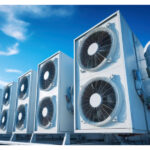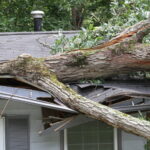Maintaining an air conditioner (AC) is essential for ensuring its efficiency, longevity, and reliability. Regular air conditioning maintenance can prevent costly breakdowns and prolong the lifespan of your system. This guide provides homeowners with practical tips to extend the life of their residential air conditioning units through effective maintenance and timely repairs.
1. Understand Your Air Conditioner
Before delving into maintenance practices, it’s crucial to understand your air conditioner’s components and how they function. Most residential air conditioning systems consist of an indoor unit (evaporator coil) and an outdoor unit (condenser coil). Each part plays a vital role in cooling your home, and neglecting one component can impact the performance of the entire system.
2. Schedule Regular Professional Inspections
One of the most effective ways to extend the life of your air conditioner is to schedule regular professional inspections. An experienced technician can conduct a thorough check-up, identify potential issues, and perform necessary air conditioning maintenance. During these inspections, the technician will clean critical components, check refrigerant levels, and ensure that all parts are functioning correctly.
Regular inspections are crucial because they help detect minor problems before they escalate into major issues that could necessitate costly residential air conditioning repairs. Ideally, you should have your system inspected at least once a year, preferably before the start of the cooling season.
3. Replace or Clean Air Filters Regularly
Air filters play a vital role in maintaining indoor air quality and ensuring the efficiency of your air conditioner. Clogged or dirty filters can restrict airflow, causing your AC to work harder and consume more energy. This not only reduces the efficiency of your system but also accelerates wear and tear.
To extend the life of your air conditioner, check and replace or clean the air filters every 1-3 months, depending on usage and the type of filter. A clean filter allows for optimal airflow and reduces strain on your AC unit, ultimately contributing to its longevity.
4. Keep the Outdoor Unit Clear of Debris
The outdoor unit of your air conditioner should be free from debris such as leaves, branches, and dirt. Accumulated debris can obstruct airflow and cause the condenser coils to overheat. To ensure optimal performance, regularly inspect the area around the outdoor unit and clear away any debris.
Additionally, ensure that the outdoor unit is placed in a well-ventilated area. Avoid placing any objects or plants too close to the unit, as this can restrict airflow and impact its efficiency.
5. Check and Seal Ductwork
Leaky or poorly insulated ductwork can lead to significant energy loss and reduced cooling efficiency. Inspect your ductwork periodically for signs of leaks or damage. Sealing any leaks with duct tape or mastic can help improve the efficiency of your air conditioner and reduce the need for frequent residential air conditioning repairs.
Proper insulation of ductwork also plays a crucial role in maintaining the temperature of the air as it travels through the system. Ensure that duct insulation is intact and in good condition to prevent energy loss.
6. Monitor Thermostat Settings
Your thermostat plays a critical role in regulating the temperature of your home and controlling the operation of your air conditioner. Ensure that your thermostat is functioning correctly and calibrated accurately. Consider investing in a programmable thermostat that allows you to set specific cooling schedules, reducing the strain on your AC unit when it’s not needed.
Maintaining consistent thermostat settings and avoiding extreme temperature fluctuations can help your air conditioner operate more efficiently and extend its lifespan.
7. Maintain Proper Refrigerant Levels
Refrigerant is essential for the cooling process in your air conditioner. Low refrigerant levels can cause your system to work harder and potentially lead to overheating or compressor damage. If you suspect that your air conditioner is low on refrigerant, contact a professional for an inspection and refill if necessary.
Refrigerant issues can also be indicative of leaks in the system. If you notice any signs of refrigerant leaks, such as reduced cooling performance or ice formation on the coils, seek professional residential air conditioning repair services promptly to address the issue.
8. Clean Coils and Fins
The evaporator and condenser coils in your air conditioner can accumulate dirt over time, reducing their efficiency. Regularly cleaning these coils helps maintain optimal heat transfer and prevents the system from overworking. Additionally, ensure that the fins on the condenser coil are straight and free from obstructions.
Cleaning the coils and fins may require professional assistance, especially if you’re unfamiliar with the process. Scheduling regular maintenance with a qualified technician can ensure that these components are cleaned and maintained properly.
Conclusion
Extending the life of your air conditioner requires a combination of regular maintenance, timely repairs, and attention to detail. By scheduling professional inspections, replacing air filters, keeping the outdoor unit clear, sealing ductwork, and maintaining proper refrigerant levels, you can ensure that your air conditioner operates efficiently and reliably for years to come. Implementing these practices will not only enhance the performance of your system but also reduce the likelihood of costly residential air conditioning repairs and ensure a comfortable home environment.










